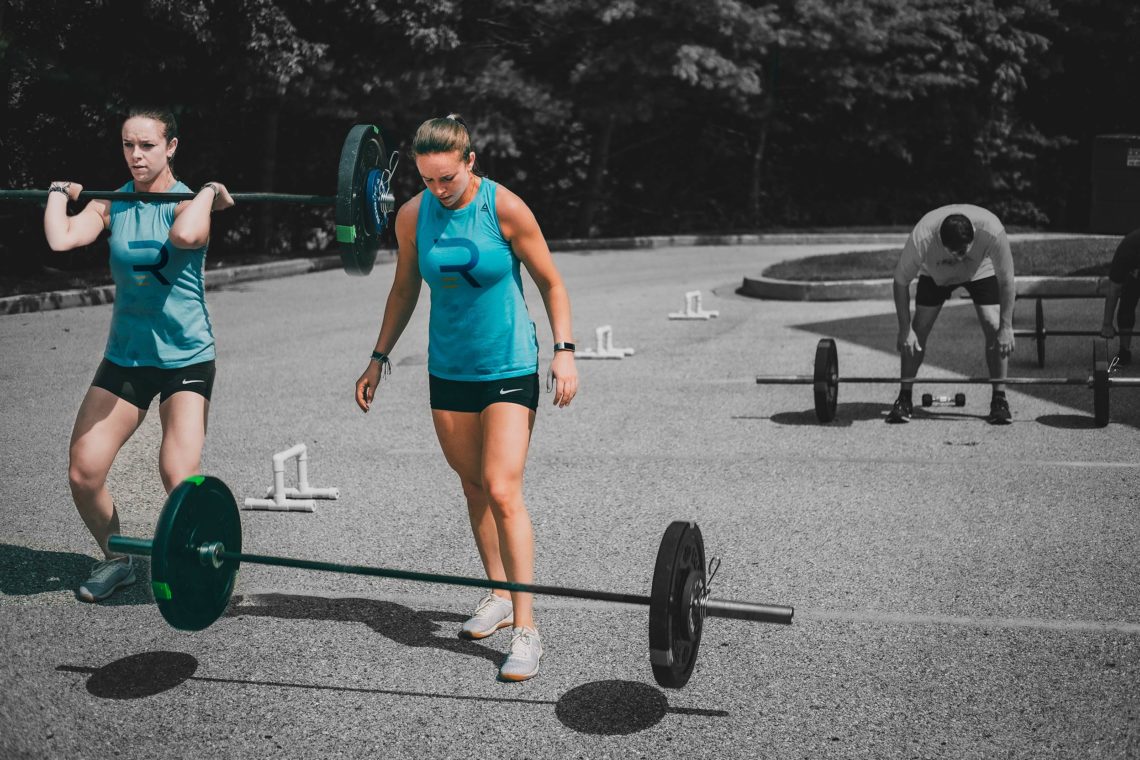We all fear something.
Are you willing to systematically address it?
It was Saturday morning.
Coach Meghan was preparing the 11 am Olympic lifting class.
For the previous 12 weeks of training, the training focus has been lower weights. Today was different. It was 1 repetition maximum clean and jerk. Meghan’s focus was on technique. Yet, the lesson she ended up teaching was far more valuable.
It was a lesson on conquering fear.
A demonstration was in order. The class needed to see the lift in action. Meghan set the bar. The weights–secured. She was ready. She explained the setup. She explained what they should feel. She told herself what to expect as she started the lift. But as the weight started to lift, her own story changed. In that split second, she was the coach. The weight, the movement, the expected outcome all changed.
Her confidence challenged.
She bailed.
The point of this compare and contrast is not “mind over matter.”
What it displays is fear within training in the best possible way. Meghan would be the first to say that fear resulted in the failed first lift. And therein lies a few themes.
1. Coaches are humans too. We are fearful of what happens when we push our bodies as most people are.
2. For many people who have dealt with an injury before, or been hurt through exercise, there is a constant vigilance of this fear. For some, it may be squats, or step-ups, or getting out of breath, or putting yourself out there in front of a group.
For others, it may be their physical limit in a specific lift or workout. Regardless of the training age, newbie or veteran, it is such a human emotion to feel fear at those moments.
And that is a good thing.
There are a lot of great quotes about courage not being the absence of fear and they are all correct.
At Recharge, everyone is fighting their own battle every time they choose to go through a class. Everyone is also battling their own fears, limitations, and uncertainty. Comparison of these feelings from one person to another in the form of outcomes is unnecessary and unhelpful.
Sharing in the vulnerability of those feelings, helping people understand those feelings, and creating psychological safety–that is a worthy outcome.
3. It shows is that our physical training provides a way to systematically grow through our fears. This doesn’t mean you need to test your fear, your limit, every day… it does mean that someday though you will. You’ll be standing in front of a weight you’ve never done or a move you’ve never tried.
You’ll fail.
Then you and your coach will find a way to develop that over time. That is a version of mastery… and it’s one of the most fulfilling things we can do.
4. That systematic approach is regardless of the actual weight lifted or time achieved. For some of the people I’ve said: “You have your whole life to go heavy.” Numbers, Times… they are all relative. And it is the self-awareness of us all that has us know when we are up against something we’ve never quite done.
5. Sustainable health… sustainable training… within context is grown through this mastery. Through this development. And it’s amazing. Some of the things I’ve seen derail this is pain. Where the fear of pushing into something turns into pain… when in reality we accept that pain has crept up testing ourselves. Then we can systematically work out of that and back into our own version of mastery.
6. Whether you are beginning to stare down lifting for the first time, moving without pain for the first time, or pushing your limits for the first time, your coaches are there for you. Mainly because we are doing the same for one another. But as a “coach” which holds such a special place to us, we are here to serve and empower you. To look at fear and approach it by not avoidance but by systematic mastery. By knowing the best way to overcome fear for ourselves, for our health, is gradually and progressively.
7. Coach Meghan did not make that lift in the second video because of some newfound courage… she made that video because since her wrist injury she has continued to develop her front squat to allow the mobility. Improve her power clean to develop the power. And broke down her overhead position to develop comfortability and connection with that movement.
I’m ecstatic for you to look into the fear in front of you. And how we can help develop a way for you to learn to overcome it. To develop a sense of mastery.




